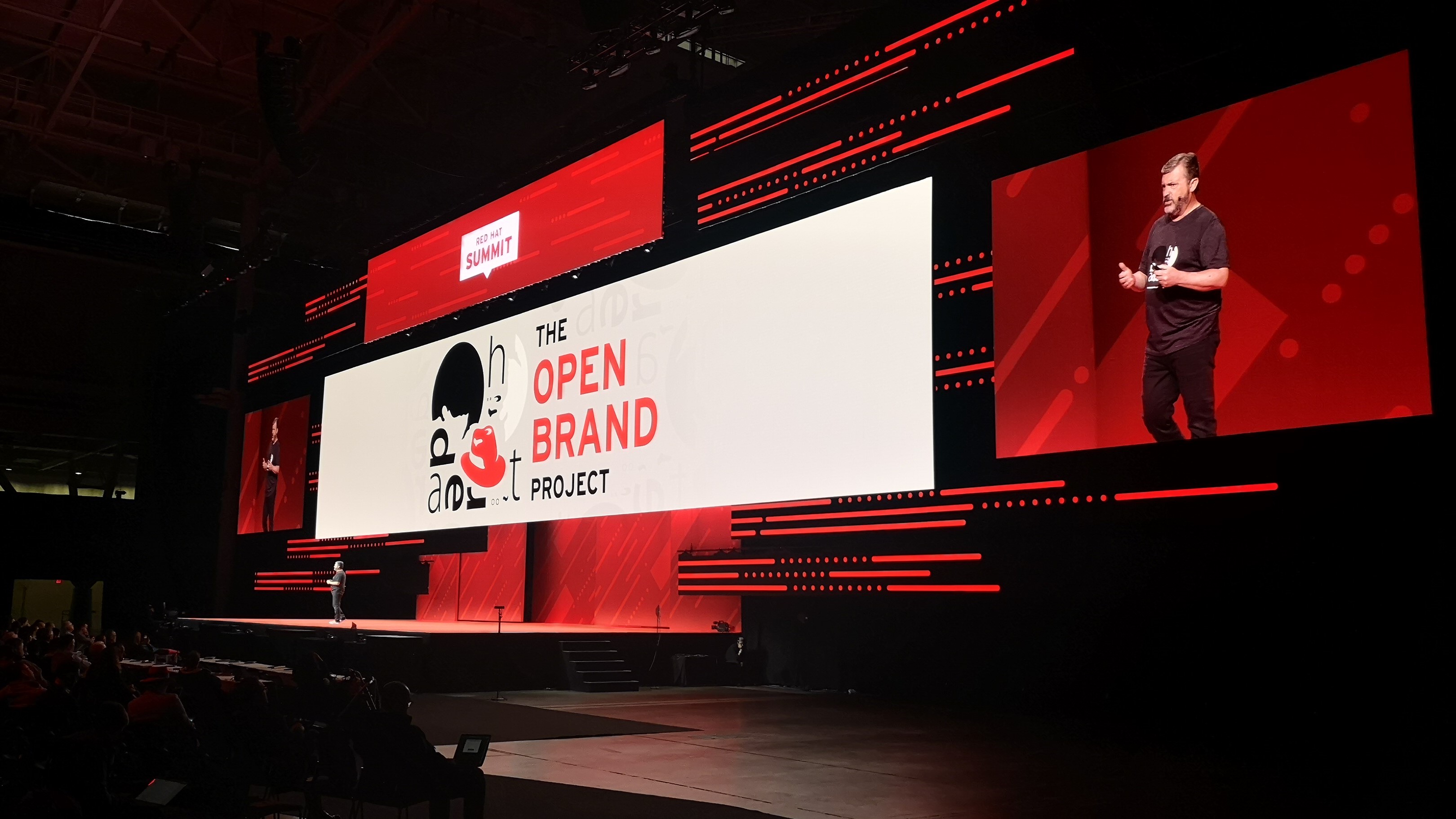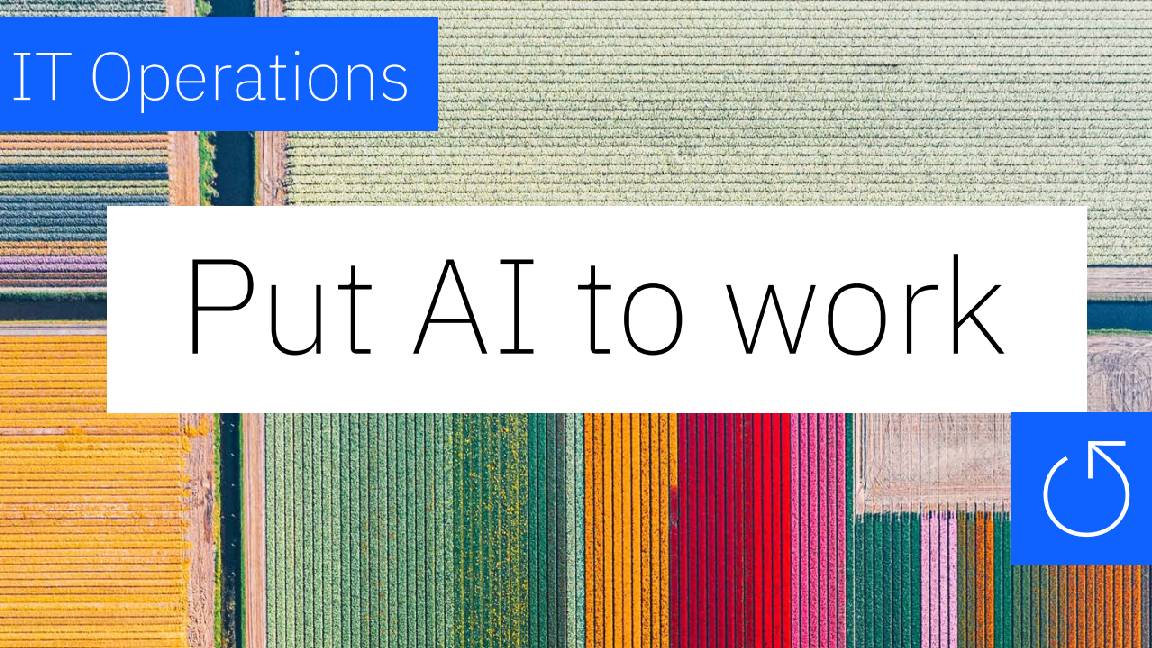IBM doubles down on Red Hat independence
Tech giant will “ensure and guarantee” that the open source firm remains neutral


IBM has again reassured Red Hat's customers and partners that the company will retain its independence and neutrality, following the completion of the $34 billion acquisition deal between the two tech firms.
In a call with press and analysts yesterday, IBM's senior vice president for cloud and cognitive software Arvind Krishna doubled down on promises that the popular and well-regarded open source firm would not be swallowed up into IBM's existing corporate structure.
"Red Hat product teams are going to make their decisions on product plan. They're going to maintain how they work on upstream, they're going to maintain that commitment on how they both contribute to open source and take from upstream projects for products that are downstream," he said; "I think that that is easy."
"The real question comes down to our behaviour with partners and we'll find Red Hat is going to be an independent sales team; it's not getting folded into the IBM sales team. They make their own decisions on pricing, who they work with, the number of people they work - with many of whom will be competitors to IBM. But this is a world of co-opetition; I believe this is no longer a world of pure competition."
Along with Red Hat's executive vice president of products and technologies Paul Cormier, Krishna also promised that there were no plans to change Red Hat's name or branding, and that the company would maintain its existing facilities in Raleigh, North Carolina and Boston, Massachusetts.
"Red Hat and IBM, we have different cultures, and there's no desire here to melt those cultures together. All we need is respect for each other's different cultures," Cormier said. "I mean, I don't even think IBM will have an opinion on what our culture should be."
The main collaboration between the two companies, the executives said, will be based around hybrid cloud, with IBM using Red Hat's OpenShift platform as the foundation for all its middleware products.
Sign up today and you will receive a free copy of our Future Focus 2025 report - the leading guidance on AI, cybersecurity and other IT challenges as per 700+ senior executives
IBM's pledge to run Red Hat as effectively a separate entity runs somewhat counter to the general trend of enterprise tech acquisitions. Hardware vendors in particular have a history of rolling newly-purchased companies into their existing businesses - Dell's acquisition of EMC and HPE's Nimble purchase are key examples of this. Cisco, Salesforce and others also have a strong track record of doing this.
For many in the IT industry, the possibility that IBM might do the same thing with Red Hat is the most worrying aspect of the deal. Red Hat has a well-earned reputation as an easygoing, vendor-neutral company which strongly supports the open source community and has a developer-centric attitude. IBM, by contrast, is often seen as not having quite as strong a background in these areas.
There are, however, some instances of tech companies keeping their acquisitions at arm's length; the two most notable examples both coming from Microsoft. The company purchased LinkedIn in 2016 and Github last year, with users in both cases expressing fears that Microsoft would change the platform to promote its own services at the expense of the existing community.
For both LinkedIn and Github, however, the few changes that have been made to the platforms since Microsoft bought them have been largely well-received by users, such as the ability to sponsor specific Github projects and contributors.
While both Red Hat and IBM are keen to assure sceptics that the partnership is in both companies' best interests, many will be closely watching IBM in the years ahead to ensure that it keeps its word.
Adam Shepherd has been a technology journalist since 2015, covering everything from cloud storage and security, to smartphones and servers. Over the course of his career, he’s seen the spread of 5G, the growing ubiquity of wireless devices, and the start of the connected revolution. He’s also been to more trade shows and technology conferences than he cares to count.
Adam is an avid follower of the latest hardware innovations, and he is never happier than when tinkering with complex network configurations, or exploring a new Linux distro. He was also previously a co-host on the ITPro Podcast, where he was often found ranting about his love of strange gadgets, his disdain for Windows Mobile, and everything in between.
You can find Adam tweeting about enterprise technology (or more often bad jokes) @AdamShepherUK.
-
 Put AI to work for IT operations
Put AI to work for IT operationswhitepaper Reduce the cost and complexity of managing hybrid applications
-
 AI in the retail industry is spreading beyond the IT department
AI in the retail industry is spreading beyond the IT departmentNews AI has become a strategic imperative for retailers, delivering marked productivity gains
-
 Maximizing contact center operations with generative AI assistants backed by responsible AI principles
Maximizing contact center operations with generative AI assistants backed by responsible AI principleswhitepaper Reduce the cost and complexity of managing hybrid applications
-
 IBM just launched powerful new open source AI models – here’s what you need to know
IBM just launched powerful new open source AI models – here’s what you need to knowNews Available under the Apache 2.0 license, IBM's Granite 3.0 models are trained on enterprise data and can out-perform the competition
-
 Achieving business outcomes with generative AI
Achieving business outcomes with generative AIWebinar Take your hybrid cloud journey to the next level with generative AI
-
 Wimbledon’s new Catch Me Up AI feature promises to keep fans up to date at the tournament – after it irons out some of the wrinkles
Wimbledon’s new Catch Me Up AI feature promises to keep fans up to date at the tournament – after it irons out some of the wrinklesNews The latest feature to come out of IBM’s partnership with Wimbledon will keep fans engaged from the early stages right through to the final with dynamic player insights
-
 AI demands new ways of data management
AI demands new ways of data managementwhitepaper The data leader’s guide for how to leverage the right databases for applications, analytics and generative AI
-
 AI governance for responsible transparent and explainable AI workflows
AI governance for responsible transparent and explainable AI workflowswhitepaper Build greater trust in your AI


